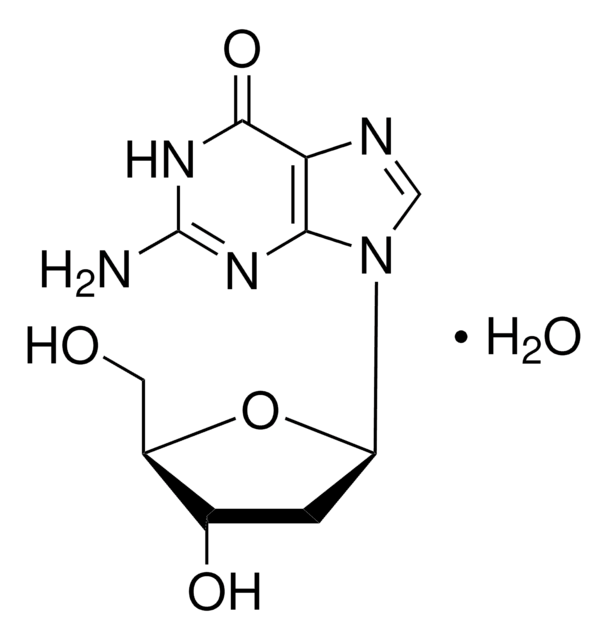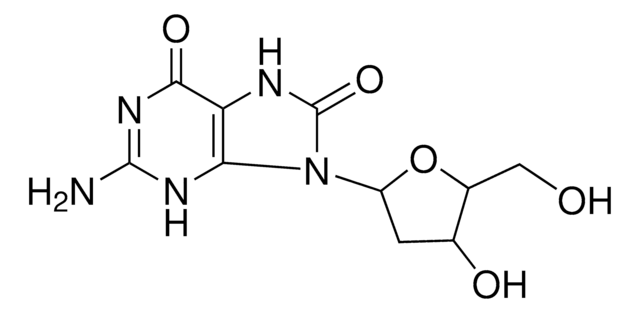D9250
2′-Deoxyguanosine 5′-diphosphate sodium salt
≥90% (HPLC)
Synonym(e):
dGDP
About This Item
Assay
≥90% (HPLC)
Form
powder
Löslichkeit
water: 50 mg/mL, clear, colorless
Lagertemp.
−20°C
SMILES String
[Na].NC1=NC(=O)c2ncn(C3CC(O)C(COP(O)(=O)OP(O)(O)=O)O3)c2N1
InChI
1S/C10H15N5O10P2.Na.H/c11-10-13-8-7(9(17)14-10)12-3-15(8)6-1-4(16)5(24-6)2-23-27(21,22)25-26(18,19)20;;/h3-6,16H,1-2H2,(H,21,22)(H2,18,19,20)(H3,11,13,14,17);;
InChIKey
VLWIICGGBFZYEZ-UHFFFAOYSA-N
Verwandte Kategorien
Allgemeine Beschreibung
Anwendung
Biochem./physiol. Wirkung
Signalwort
Warning
H-Sätze
Gefahreneinstufungen
Eye Irrit. 2 - Skin Irrit. 2 - STOT SE 3
Zielorgane
Respiratory system
Lagerklassenschlüssel
11 - Combustible Solids
WGK
WGK 3
Persönliche Schutzausrüstung
dust mask type N95 (US), Eyeshields, Gloves
Analysenzertifikate (COA)
Suchen Sie nach Analysenzertifikate (COA), indem Sie die Lot-/Chargennummer des Produkts eingeben. Lot- und Chargennummern sind auf dem Produktetikett hinter den Wörtern ‘Lot’ oder ‘Batch’ (Lot oder Charge) zu finden.
Besitzen Sie dieses Produkt bereits?
In der Dokumentenbibliothek finden Sie die Dokumentation zu den Produkten, die Sie kürzlich erworben haben.
Kunden haben sich ebenfalls angesehen
Unser Team von Wissenschaftlern verfügt über Erfahrung in allen Forschungsbereichen einschließlich Life Science, Materialwissenschaften, chemischer Synthese, Chromatographie, Analytik und vielen mehr..
Setzen Sie sich mit dem technischen Dienst in Verbindung.




